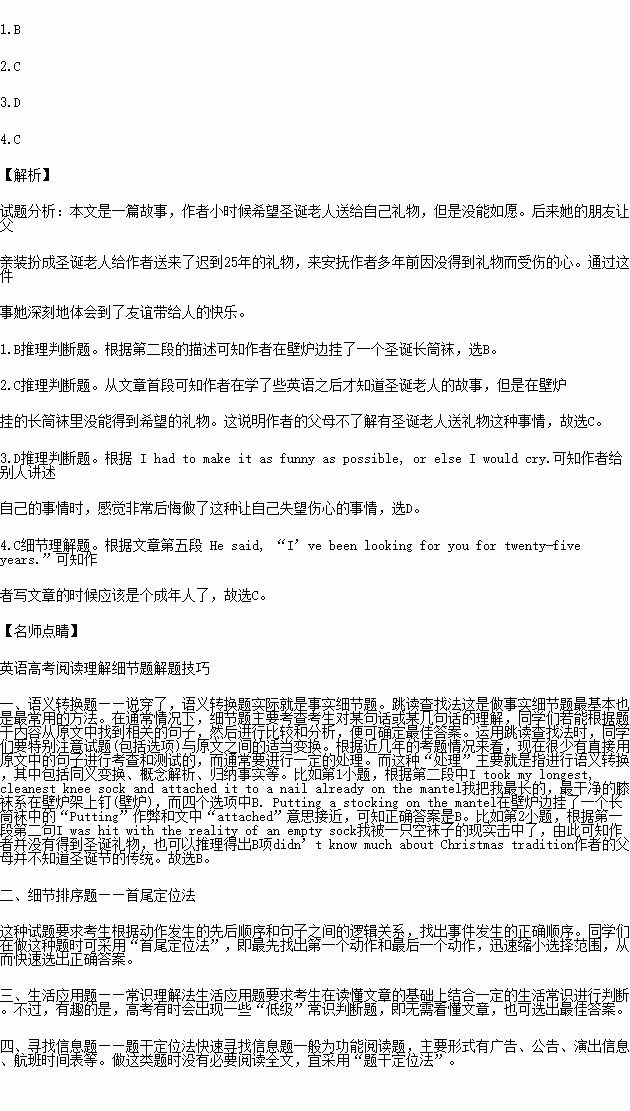题目内容
My family moved from Taiwan to a small town in central Georgia, where my dad got a visa for his family and a job. I had just learned English, and from what little I could gather from my classmates, Santa Claus would come down one’s chimney and put toys in one’s stocking on Christmas Eve! What a great country, I thought. After I looked up “stocking” in my Chinese-English dictionary, I knew what I had to do.
On that fateful night, after everyone went to bed, I took my longest, cleanest knee sock and attached it to a nail already on the mantel(壁炉). Obviously, the previous owners of this house were no strangers to this Santa character.
I woke up before everyone else on Christmas Day and ran to the fireplace. To make a sob story short, I was hit with the reality of an empty sock and the biggest lie ever told. I burst into tears, quickly took down the sock, and stuffed it in the back of a drawer. Santa was dead.
Every December since then, the topic of Christmas memories would unavoidably come up, and I would amuse my friends with my poor-little-me story. I had to make it as funny as possible, or else I would cry.
How could I know that Santa was just late? Nine years ago, on Christmas Eve, an older man with a white beard and a red cap knocked on my front door. He said, “I’ve been looking for you for twenty-five years.” He handed me a bulging red stocking, winked, and left. On top of the stocking was a card. It read: “For Becky—I may have missed you in the second grade, but you’ve always lived in my heart. Santa.”
Through tear-blurred eyes, I recognized the handwriting of Jill, a friend I had met just two months before. I later discovered that the older man was her father. Jill had seen the hurt little girl underneath the thirty-something woman and decided to do something about it.
So now I believe that Santa is real. I don’t mean the twinkle-eyed character of children’s mythology or the creation of American holiday marketers. Those Santas annoy and sadden me. I believe in the Santa Claus that live inside good and thoughtful people. This Santa does not return to the North Pole after a crazy delivery but lives each day purposefully, really listens to friends, and then plans deliberate acts of kindness.
1.What does the underlined part “what I had to do” in Paragraph 1 refer to?
A. Waiting for Santa Claus.
B. Putting a stocking on the mantel.
C. Asking for gifts from her parents.
D. Looking up “stocking” in the dictionary
2.It can be inferred from the passage that the author’s parents ________.
A. didn’t love their child at all
B. didn’t know the previous owners of the house
C. didn’t know much about Christmas tradition
D. didn’t have enough money to buy the author Christmas presents
3.When the author told her friends about the story, she felt ________ in her heart.
A. proud B. amusing C. hate D. regret
4.The author of the passage is probably ________.
A. a teenager B. a primary school student
C. a middle-aged woman D. a native American
 新思维寒假作业系列答案
新思维寒假作业系列答案


